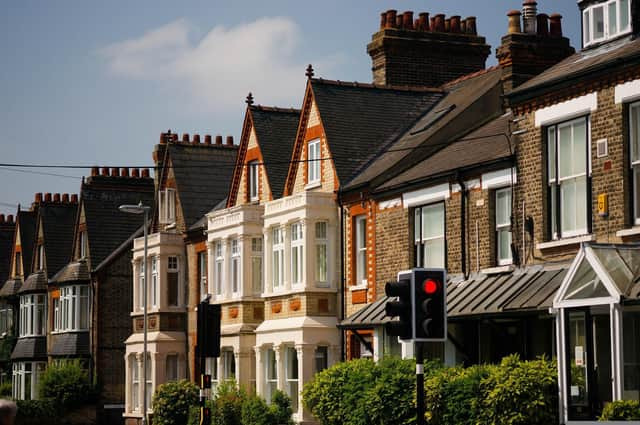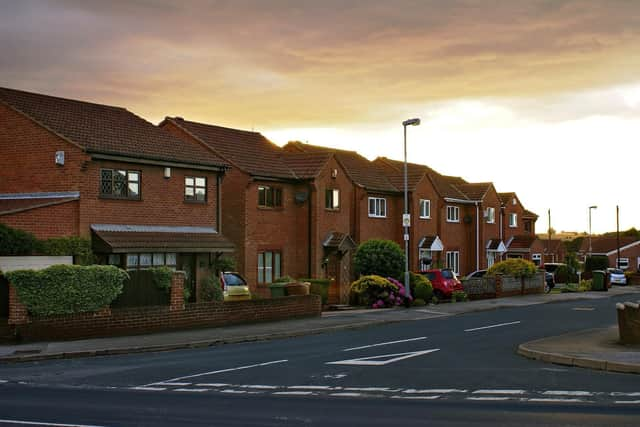UK house prices drop for first time in a year


The average price of a home last month was £293,221, which demonstrates a 0.1 per cent decrease month-on-month according to the most recent report from the Halifax.
Although the average house price is still £30,000 higher than last year, the drop lowered the annual rate of growth from 12.5 per cent to 11.8 per cent.
Advertisement
Hide AdAdvertisement
Hide AdWith the nation facing the biggest increase in interest rates in 27 years amid the current cost of living crisis, some experts predict a market crash, although opinion remains divided.
Mortgage approvals have fallen for five months in a row – a strong indicator that housing market activity is cooling.
There are signs of an increase in supply, with the number of sellers lifting by 13 per cent compared to this time last year, according to Rightmove, although the number of available homes for sale remains 40 per cent lower than in 2019.
Simon Kendall, partner at Richard Kendall Estate Agents, said he has seen no evidence of change in the West Yorkshire housing market.
Advertisement
Hide AdAdvertisement
Hide AdHe said: “We are still seeing good activity and appetite in sales, with rental prices remaining high too. We do anticipate a slow down in the future, but not a massive downturn in activity. All the talk is of this happening due to a combination of inflation, the cost of living and interest rates.


"Interest rates are still at an affordable-ish level, although expected to rise again by the end of the year at least once.”
Some high end sellers continue to test the market with asking prices that reduce over time, but this happens in a healthy market, added Mr Kendall. At the lower end, it is still a worrying situation for first time buyers.
Simon Bath, CEO of iPlace Global, said: “While I don’t believe we will see a fully-fledged housing market crash, I do believe prices will start to fall further as the cost-of-living crisis worsens and inflation continues to rise.
Advertisement
Hide AdAdvertisement
Hide Ad"With energy prices predicted to rise another 65 per cent in October, people will not be able to afford mortgage repayments on properties they may have been able to manage previously.“July’s 0.1 per cent decrease in average house prices doesn’t sound much, but it’s hugely significant.
"For first-time buyers, the market is daunting, and until prices decrease, people would benefit from something being reintroduced like the Help to Buy scheme.”
David Hannah, group chairman at Cornerstone Tax said: "I don't predict a property market crash in 2022. The surge in demand, even with rising interest rates, has represented an adequate amount of liquidity, which is a good sign.
"The crash of 2008 happened because of a sudden loss of liquidity in the international banking market and we aren’t in that situation again.
Advertisement
Hide AdAdvertisement
Hide Ad"I believe wages will begin to rise, meaning real spending power may not decrease as much. The problem we have is the rate of demand and supply. If builders over supply, it will soften the increase and the appreciation in asset value. But, if the number of people wanting to buy houses continue to exceed supply, then those prices are going to rise.”